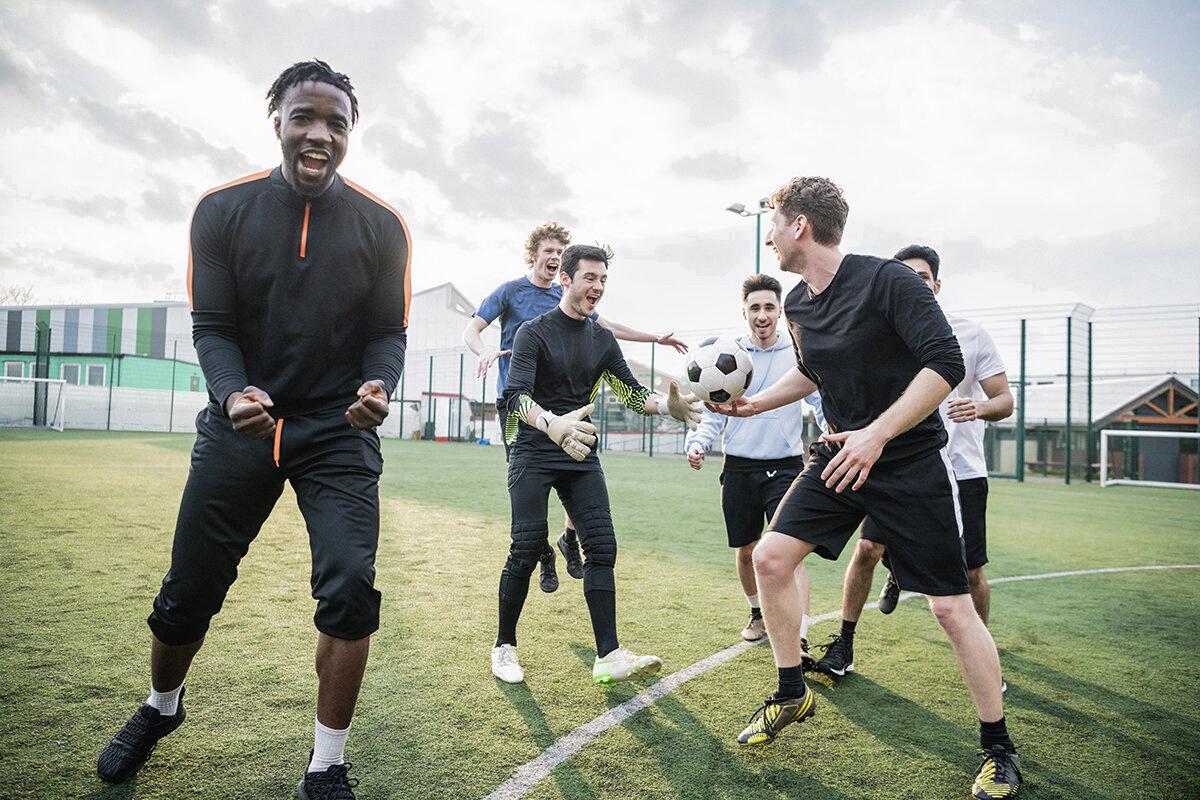Olympic athletes are some of the most dedicated and talented individuals in the world. They spend countless hours, days, and years training and perfecting their craft, all with the goal of representing their country on the world stage. But with all of this hard work, do Olympic athletes get paid to train?
The answer is both yes and no. While Olympic athletes do not receive a salary for their training and preparation leading up to the games, they are supported by a variety of organizations and funding sources. The United States Olympic and Paralympic Committee (USOPC), for example, provides training centers, funds, and support staff to elite athletes. These resources help athletes cover the costs of equipment, coaching, and travel expenses, which can add up to tens of thousands of dollars per year.
In addition to support from the USOPC, Olympic athletes may also receive sponsorships from outside organizations. These sponsorships can provide athletes with additional income, as well as access to equipment and resources that can help them train and compete at the highest level. However, it’s worth noting that not all athletes receive sponsorships, and those who do may still need to cover some expenses out of pocket.
Once an athlete makes it to the Olympics, their travel expenses are typically covered by their national team. However, Olympic athletes do not receive a salary for their participation in the games. Instead, they may be eligible for cash prizes based on their performance. In the United States, for example, Team USA pays $37,500 for each gold medal, $22,500 per silver, and $15,000 per bronze.
Despite the lack of financial compensation for their training and participation in the Olympics, many athletes continue to pursue their dreams of Olympic glory. For them, the opportunity to represent their country and compete against the best in the world is a reward in itself. And for those who do achieve success at the games, the recognition and opportunities that come with bing an Olympic medalist can be life-changing.
Olympic athletes do not receive a salary for their training and preparation leading up to the games. However, they are supported by a variety of organizations and funding sources, and may be eligible for cash prizes based on their performance at the Olympics. Despite the financial challenges, Olympic athletes continue to dedicate themselves to their sport, driven by their passion and the desire to represent their country at the highest level.
Do Olympic Athletes Have to Cover Their Own Travel Expenses?
Yes, Olympic athletes have to pay for their travel leading up to the Olympics. This means that all expenses related to training, equipment, and travel to qualifying events are completely self-funded. However, once an athlete makes it to the Olympics, their travel expenses are covered by the United States Olympic and Paralympic Committee. It’s important to note that athletes won’t make money off of participating in the Olympics unless they medal or secure sponsorships from outside organizations. Overall, becoming an Olympic athlete and achieving success in the games is a challenging journey that requires significant financial investments and sacrifices.

How Athletes Finance Olympic Training and Travel
Athletes who compete in the Olympics require a significant amount of training, support staff, and travel to compete at the highest level. However, the cost of thee things can be incredibly high, and many athletes struggle to afford them. Fortunately, there are several ways that athletes can obtain the necessary funds to compete in the Olympics.
One major source of funding for Olympic athletes comes from the US Olympic Committee (USOC). The USOC is a non-profit organization that is funded by private contributions, corporate sponsorships, and the International Olympic Committee. The USOC provides training centers, funds, and support staff to elite athletes, which can help alleviate some of the financial burdens associated with training for the Olympics.
In addition to the USOC, many Olympic athletes receive support from their individual sports’ governing bodies. These organizations often provide training facilities, coaches, and financial support to athletes who are competing at the highest level.
Another way that Olympic athletes can obtain funding is through sponsorships. Many companies are willing to sponsor athletes who are competing in the Olympics, providing them with the financial support they need to train and travel to competitions. These sponsorships can come in the form of cash, equipment, or other resources that can help athletes achieve their goals.
Finally, some Olympic athletes choose to crowdfund their training and travel expenses. This involves setting up a fundraising campaign online and asking friends, family, and fans to contribute. While this approach can be challenging, it has been successful for some athletes who are unable to obtain funding through other means.
Overall, there are several ways that Olympic athletes can obtain the necessary funds to train and travel to the Olympics. From support from the USOC and governing bodies to sponsorships and crowdfunding, there are many resources available to athletes who are willing to put in the hard work required to compete at the highest level.
How Much Do Olympic Athletes Earn?
Olympic athletes do not receive a salary or payment for participating in the Olympic Games. However, some countries offer financial incentives to their athletes for winning medals. For instance, Singapore offers $1 million for a gold medal, while Kazakhstan offers $250,000 for gold. The United States Olympic Committee also provides bonuses to American medalists, with $37,500 for each gold medal, $22,500 per silver, and $15,000 per bronze. Nevertheless, most Olympic athletes rely on sponsorships, endorsements, and other sources of income to support their training and competition expenses.
Cost of Training an Athlete for the Olympics
Training an athlete for the Olympics can be a costly endeavor. According to Mike Trapp, a two-time U.S. snowboarding champion, the average cost for a season of training is around $35,000. This cost includes expenses such as equipment, coaching, and travel. However, in the year leading up to the Olympics, the cost can be even higher due to the increased intensity and frequency of training required to prepare for the event. It’s important to keep in mind that tese costs can vary depending on the sport, location, and level of competition, but it’s clear that training for the Olympics requires a significant financial investment.
Do Olympic Athletes Receive Free Housing?
Olympic athletes typically do not pay for their housing during the Games. The Olympic Committee is responsible for providing accommodation for the athletes in the Olympic Village. This includes the cost of the room, utilities, and other basic amenities. However, it’s worth noting that the athletes’ accommodations may vary depending on their country, sport, and level of competition. For instance, some athletes may stay in more luxurious accommodations if their country has a higher budget or if they are high-profile athletes. Nonetheless, most athletes do not have to worry about paying for their housing during the Games.

Do Olympians Have to Pay for Food?
No, Olympians do not have to pay for food during the Olympic Games. The International Olympic Committee (IOC) covers the expenses for the athletes’ meals, along with their travel and lodging. This means that athletes do not have to worry about the cost of food while they are competing in the Olympics. However, outside of the Olympic Games, athletes are responsible for paying for their own food and training costs. It is important to note that some countries may have different policies, but in general, the IOC covers the cost of food for Olympians during the Games.
Who Funds the Training of Olympic Athletes?
Olympic athletes in the United States rely on private funding to support their training and competition expenses. The U.S. Olympic Committee, which is responsible for sending American athletes to the Olympic Games, does not receive any federal government support. Instead, the Committee raises funds through private donations, sponsorships, and licensing agreements. The Team USA Fund is one of the primary sources of financial support for Olympic athletes. This fund helps cover costs asociated with training, coaching, travel, and equipment. Additionally, many Olympic athletes also receive financial support from their respective sports’ national governing body, as well as personal sponsors and endorsements. Overall, the funding for Olympians’ training and preparation comes from a combination of private donations and sponsorships, rather than government support.
Do Olympians Have Day Jobs?
Yes, some Olympians have day jobs. While many Olympians can make money through sponsorships and stipends, it’s not always enough to sustain them financially. Some American athletes work in family businesses, while others have pursued alternative careers. For example, at least one Olympian is known for his art and sells his paintings. Additionally, some Olympians have pursued higher education and have degrees in fields such as dentistry and pharmacy. However, it’s worth noting that not all Olympians have day jobs – it ultimately depends on their individual financial situation and career path.
Do Olympians Have Jobs Outside of Sports?
Olympians typically do not have traditional jobs while they are competing at the highest level. Being an athlete at the top of the international field is a full-time commitment that requires a significant amount of time and effort. Most Olympians train year-round, uually six days a week, sometimes twice a day, and are on the road for five months in the winter, plus a month or two here and there for training camps. As a result, there is not much time in the day or year to be doing another job. However, some Olympians may have sponsorships or endorsements that provide them with income, but these arrangements are typically contingent on their status as top-performing athletes. Overall, the focus for Olympians is on training and competing at the highest level, rather than pursuing traditional jobs.

Making a Living as an Olympic Athlete
Olympic athletes typically do not make a living solely from thir sport. Most athletes rely on sponsorships, grants, and endorsements to support themselves financially. These sponsorships can come from a variety of sources, including corporations, sports brands, and even individual donors. Additionally, some countries offer financial incentives for athletes who win medals at the Olympic Games. For example, the United States Olympic Committee pays a cash reward to medalists, with higher amounts awarded for gold and silver medals. However, it is important to note that the amount of money earned from sponsorships and medal rewards can vary greatly depending on an athlete’s level of success and popularity.
The Highest Paid Olympic Athlete
The highest paid Olympic athlete is Usain Bolt, a Jamaican track and field sprinter. Bolt has won a total of eight Olympic gold medals and is considered the fastest man in history, holding both the world sprint record for the 100 meters (9.58 seconds) and 200 meters (19.19 seconds). As of 2021, Bolt’s net worth is estimated to be around US$90 million, making him the highest paid Olympic athlete. Bolt’s success on the track, combined with his endorsements deals with brands such as Puma, Hublot, and Virgin Media, have contributed to his impressive net worth.
Estimating Simone Biles’ Net Worth
Simone Biles, the American Olympic gymnast, has a net worth of $16 million as of 2021. She has earned this fortune through her successful career as a gymnast, as well as her endorsements and other business ventures. Throughout her career, she has won numerous medals and championships, including four gold medals and one bronze medal at the 2016 Rio Olympics. Biles has also signed endorsement deals with major brands such as Nike, Beats by Dre, and Kellogg’s, which have contributed significantly to her net worth. Additionally, she has appeared in several TV shows, including Dancing with the Stars and Lip Sync Battle, which have further increased her earnings. Overall, Simone Biles has established hrself as one of the most successful gymnasts in history, and her net worth reflects her hard work and dedication to the sport.
Making Money During Olympic Training
Olympians have several ways to make money during training, and one of the most common ways is through corporate sponsorships. These sponsorships are typically secured by the athlete’s talent and popularity in their respective sports. Corporate sponsors provide funds for the athlete to train, travel, and compete in their sport. In exchange for funding, the sponsors’ logos apear on the athlete’s clothing or gear, as well as in any advertising that the athlete may participate in prior to the Olympics. Additionally, some athletes may earn money through prize money from competitions and endorsements for products or services. However, it is important to note that not all athletes make a significant amount of money during training, and many rely on financial support from family members, friends, or other sources.

Source: enas-sport.net
Training Hours of an Olympian
Olympians typically train for several hours a day, with the exact amount of time varying depending on the sport and the athlete’s training regimen. For example, Olympic weightlifters may train four to eight times a week, with each session lasting around 2 hours. In addition to these training sessions, athletes may also engage in recovery work outside of their sport. Overall, the training schedule for an Olympic athlete can be quite demanding, requiring a significant investment of time and energy to achieve peak performance on the world stage.
Do Athletes Have to Pay for Travel Expenses?
Yes, athletes usually pay for their travel expenses to attend competitions, including the Olympics, before they qualify for the event. This means that they have to cover costs such as flights, accommodation, food, and transportation, whih can be quite expensive. However, once they qualify for the Olympics, their travel expenses are covered by their respective National Olympic Committees. Nonetheless, it’s worth noting that even if an athlete qualifies for the Olympics, there’s no guarantee of receiving any monetary compensation unless they win a medal or secure sponsorship deals, which are only available to a select few athletes. So, while athletes’ travel expenses may be covered for the Olympics, they often have to fund their own travel expenses for other competitions.
Conclusion
In conclusion, Olympic athletes have to overcome numerous challenges and financial hurdles to achieve their dream of representing their country at the biggest sporting event in the world. Despite the expenses involved in training and traveling, the support from the US Olympic Committee and corporate sponsorships can help alleviate some of the financial burden. However, even with support, the road to the Olympics is a difficult one, and athletes must have unwavering dedication, hard work, and perseverance to succeed. Nevertheless, the opportunity to compete at the Olympic Games and represent their country on the global stage is a once-in-a-lifetime experience for many athletes, making all the sacrifices and challenges worthwhile. Olympic athletes are true champions who inspire and motivate us to pursue our own dreams, no matter how difficult the path may be.
